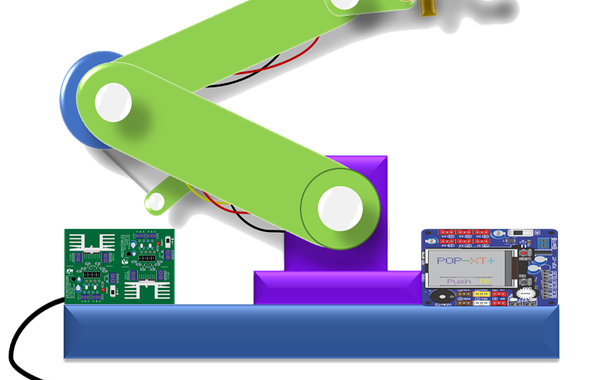Future of Artificial Intelligence Technology
Artificial Intelligence (AI) is no longer a concept confined to the realms of science fiction. Today, AI is a pivotal part of our daily lives and is continually shaping the future. From voice-activated personal assistants to sophisticated machine learning algorithms driving business decisions, AI’s influence is profound and far-reaching. But what lies ahead for this groundbreaking technology?
Current State of AI Technology
Recent Advancements in AI
AI has seen remarkable advancements in recent years. Machine learning models have become more sophisticated, capable of learning and adapting from vast amounts of data. Breakthroughs in natural language processing (NLP) have enabled AI to understand and generate human language with impressive accuracy, as seen in technologies like GPT-4.
Key Applications of AI Today
AI’s applications are vast and varied, impacting numerous sectors:
- Healthcare: AI assists in diagnostic imaging, predictive analytics for patient outcomes, and personalized medicine.
- Finance: AI is used for fraud detection, algorithmic trading, and personalized banking services.
- Retail: AI powers recommendation systems, inventory management, and customer service chatbots.
- Transportation: AI is critical in autonomous vehicles, traffic management systems, and logistics optimization.
AI in Everyday Life
AI in Healthcare
AI technologies are revolutionizing healthcare by providing tools for early disease detection, personalized treatment plans, and efficient management of healthcare records. AI-powered diagnostic tools can analyze medical images with a high degree of accuracy, often surpassing human capabilities.
AI in Finance
In the financial sector, AI algorithms analyze market trends, detect fraudulent activities, and provide personalized financial advice. AI-driven chatbots offer customers 24/7 assistance, enhancing user experience and operational efficiency.
AI in Retail
Retailers utilize AI to enhance customer experiences through personalized shopping recommendations, optimized inventory management, and efficient supply chain logistics. AI helps predict consumer trends and behaviors, enabling businesses to make informed decisions.
AI in Transportation
AI is at the heart of innovations in transportation, from self-driving cars to smart traffic management systems. AI improves route planning, reduces congestion, and enhances safety by analyzing and responding to real-time data.
The Potential of AI in Transforming Industries
AI in Education
AI has the potential to transform education by offering personalized learning experiences, automating administrative tasks, and providing real-time feedback to students. Intelligent tutoring systems adapt to individual learning paces and styles, making education more accessible and effective.
AI in Agriculture
In agriculture, AI technologies are used for precision farming, which involves analyzing data from various sources to optimize crop yields and reduce waste. AI-powered drones monitor crop health, and predictive analytics help farmers make data-driven decisions.
AI in Manufacturing
AI enhances manufacturing through predictive maintenance, quality control, and automation. AI-driven robots work alongside humans to increase efficiency and reduce errors in production lines.
AI in Entertainment
The entertainment industry leverages AI for content creation, recommendation systems, and personalized user experiences. AI algorithms analyze viewer preferences to suggest content, enhancing engagement and satisfaction.
Emerging Trends in AI Technology
AI and Machine Learning
Machine learning, a subset of AI, continues to evolve, with advancements in deep learning and reinforcement learning pushing the boundaries of what AI can achieve. These technologies enable AI systems to learn from experience and improve their performance over time.
AI and Natural Language Processing
NLP advancements allow AI to understand, interpret, and generate human language. This capability is transforming customer service, content creation, and communication technologies, making interactions with machines more natural and intuitive.
AI and Robotics
AI and robotics are converging to create intelligent machines capable of performing complex tasks in various environments. From manufacturing robots to domestic assistants, AI-driven robots are becoming more adaptive and efficient.
AI and Quantum Computing
Quantum computing holds the potential to exponentially increase AI’s processing power, enabling the solving of complex problems that are currently intractable. This emerging field could revolutionize AI by providing new computational capabilities.
Ethical Considerations in AI Development
AI and Privacy Concerns
As AI systems collect and analyze vast amounts of data, privacy concerns become paramount. Ensuring that data is used responsibly and protecting individuals’ privacy rights is critical for building trust in AI technologies.
AI and Bias
AI systems can inadvertently perpetuate biases present in their training data, leading to unfair or discriminatory outcomes. Addressing algorithmic bias is essential to ensure AI technologies are equitable and just.
Ensuring Transparency in AI
Transparency in AI systems is crucial for accountability and trust. Users need to understand how AI decisions are made, especially in critical applications like healthcare and finance.
The Role of Governments and Regulations
Government Policies on AI
Governments play a crucial role in shaping the future of AI through policies and regulations that promote innovation while safeguarding public interests. Balancing innovation with ethical considerations is key.
International AI Regulations
Harmonizing AI regulations across borders is important for fostering global collaboration and ensuring that AI developments benefit humanity as a whole. International frameworks can help address common challenges and set standards.
The Importance of Ethical AI Frameworks
Ethical AI frameworks guide the development and deployment of AI technologies, ensuring they align with societal values and human rights. These frameworks promote transparency, accountability, and fairness in AI systems.
Challenges in AI Development
Technical Challenges
Developing robust AI systems involves significant technical challenges, including improving algorithm accuracy, managing large datasets, and ensuring system reliability and security.
Societal Challenges
AI’s impact on employment, privacy, and social equity raises important societal questions. Addressing these challenges requires a multidisciplinary approach involving technologists, policymakers, and ethicists.
Economic Challenges
AI development and deployment can be costly, posing economic challenges for organizations. Ensuring that the benefits of AI are accessible to all, regardless of economic status, is a critical consideration.
The Future of AI: Predictions and Possibilities
AI in Smart Cities
AI will play a pivotal role in the development of smart cities, optimizing everything from energy use to traffic flow, and enhancing the quality of life for residents through intelligent infrastructure and services.
AI in Climate Change Solutions
AI can help tackle climate change by optimizing energy consumption, predicting environmental changes, and improving disaster response. AI-driven models can provide insights into climate patterns and inform policy decisions.
AI in Personal Assistants
The future will see more advanced personal assistants capable of understanding and anticipating our needs, providing seamless integration with various aspects of our lives, from managing schedules to controlling smart home devices.
The Possibility of General AI
While current AI is specialized, the development of General AI, capable of performing any intellectual task a human can, remains a distant but intriguing possibility. Achieving General AI would mark a significant milestone in AI evolution.
How to Prepare for an AI-driven Future
Learning and Education
Staying informed about AI advancements and understanding their implications is crucial. Educational institutions and online platforms offer courses on AI and related technologies, providing valuable knowledge and skills.
Skills Development
Developing skills in data analysis, machine learning, and AI programming is essential for thriving in an AI-driven world. Continuous learning and adaptability will be key.
Adapting to AI in the Workplace
Embracing AI in the workplace involves understanding how AI can augment human capabilities and improve productivity. Organizations should invest in training programs to help employees adapt to new AI tools and systems.
Conclusion
AI technology is poised to transform our world in unprecedented ways. From enhancing everyday life to addressing global challenges, the potential of AI is vast. However, realizing this potential requires careful consideration of ethical, societal, and economic impacts. By preparing for an AI-driven future, we can harness its power to create a better world for all.
FAQs
What is the current state of AI technology?
AI technology has made significant strides, with advancements in machine learning, natural language processing, and robotics driving innovation across various sectors. AI systems are becoming more capable and integrated into everyday applications.
How will AI change the job market?
AI is likely to transform the job market by automating routine tasks and creating new roles that require advanced technical skills. While some jobs may be displaced, new opportunities will emerge in AI development, data analysis, and AI-driven industries.
What are the ethical concerns surrounding AI?
Ethical concerns in AI include data privacy, algorithmic bias, and the need for transparency and accountability in AI systems. Addressing these concerns is essential to ensure that AI technologies are fair, equitable, and trustworthy.
Can AI help solve climate change?
AI has the potential to significantly impact climate change solutions by optimizing energy usage, predicting environmental changes, and improving disaster response. AI-driven insights can inform policy decisions and enhance climate resilience.
What skills will be important in an AI-driven world?
In an AI-driven world, skills in data analysis, machine learning, programming, and AI ethics will be crucial. Adaptability, continuous learning, and the ability to work alongside AI systems will also be important.




